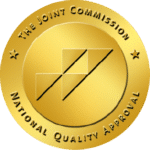Introduction
Firefighters are a rare breed. The LAFD and other firefighters work hard and often put their lives on the line for others. It’s no surprise that firefighters suffer from post-traumatic stress disorder (PTSD) at higher rates than other professions. According to the National Fire Protection Association, approximately 20 percent of firefighters have PTSD. To make matters worse, many firefighters who need help with their mental health don’t seek it out because of stigma surrounding mental health issues in the firefighting community. That’s why we need innovative approaches like ketamine assisted treatment to help our first responders overcome their trauma and get back to what they do best: saving lives!
What is PTSD?
PTSD, or post traumatic stress disorder, is an anxiety disorder that can develop after you experience a traumatic event. The symptoms of PTSD include flashbacks and nightmares about the trauma; dissociation (feeling disconnected from your body); hyperarousal (being easily startled); insomnia; negative thoughts about yourself or others; guilt or shame; trouble concentrating on daily tasks; irritability or outbursts of anger with little provocation; feeling emotionally numb or detached from others around you. If your first responder hero has been diagnosed with PTSD by a qualified professional then it’s important for you both to know that there are treatments available for this condition!
The needs and challenges of firefighters.
Firefighters are at a higher risk of developing PTSD than the general population. The nature and frequency of traumatic events they experience, as well as their exposure to death and human suffering, can lead firefighters to develop PTSD. In addition, firefighters often feel a sense of responsibility for saving lives while they’re on duty that can make it hard for them to seek help when they need it.
Firefighters also face unique challenges when dealing with mental illness:
- First responders are often reluctant to seek treatment because they worry about losing their jobs or being pushed out by their employers if their diagnosis becomes public knowledge. They may also be concerned about how other people will react if they find out about their condition–for example, whether friends or family members might stop associating with them because of it.* Firefighters may be reluctant or unable to recognize signs that something is wrong because these symptoms could be mistaken for normal reactions following trauma exposure (e.g., difficulty sleeping).
Why some first responders develop PTSD.
The nature of the job is a factor in developing PTSD. First responders are often exposed to traumatic events, such as witnessing or experiencing violence, death or injury.
The intensity of their work also plays a role in developing PTSD. The more intense the situation, the greater likelihood it will be severe enough for someone who is already at risk for developing PTSD to develop it. This may include responding to an active shooter scenario or other life-threatening event where there’s no time for reflection because you need immediate action from yourself and others around you.
The frequency with which first responders are exposed to traumatic events plays another role in whether they develop PTSD: If they’re frequently exposed over time (like those who go on call every day), this can increase their risk as well as make symptoms worse if they do develop them later on down the road..
The symptoms of PTSD.
- Flashbacks: A flashback is an involuntary reliving of a traumatic event. It can be triggered by certain sights, sounds and smells that remind you of the original trauma. Flashbacks may occur suddenly or gradually, and they can be mild or severe in intensity.
- Nightmares: Nightmares are vivid dreams about traumatic events that cause you to wake up feeling afraid, anxious or upset. They usually happen during REM sleep (rapid eye movement), when we’re most rested and relaxed — but this doesn’t mean they’re less real than our waking memories!
- Avoidance: Avoidance means avoiding anything that reminds you of your trauma because it brings up painful feelings from the past–like avoiding driving if you were involved in a car crash as a passenger, or avoiding friends who have similar interests as those who bullied you at school back then..
The recovery process for firefighters with PTSD.
The recovery process for firefighters with PTSD.
For firefighters, the recovery process begins by being able to talk about their experiences and then move on to processing them. Firefighters will need to understand how they are affected by their experiences and make sense of them so that they can begin healing from trauma.
How ketamine can help treat PTSD in firefighters.
Ketamine has been shown to help with depression and PTSD. Ketamine can also be used to treat PTSD in firefighters, as it has shown to reduce symptoms of post-traumatic stress disorder (PTSD) in people who have suffered from traumatic events such as childhood abuse, sexual assault or combat exposure.
Ketamine coupled with cognitive behavioral therapy is very effective at reducing symptoms of post-traumatic stress disorder (PTSD).
Intensive outpatient programs are an effective way to help firefighters recover from the impact of their work, and ketamine is an important piece of that treatment.
Intensive outpatient programs are an effective way to help firefighters recover from the impact of their work, and ketamine is an important piece of that treatment.
Ketamine is a safe, effective drug that can help with PTSD. It’s been used in hospitals for decades as an anesthesia drug and also as an analgesic (painkiller). In recent years, ketamine has been shown to be helpful for people suffering from depression or anxiety disorders like PTSD.
Conclusion
We hope this article has helped you understand the challenges faced by first responders and the recovery process they undergo. We also want to emphasize that there are many options available for firefighters with PTSD, including intensive outpatient programs and ketamine assisted treatment. If you or someone you know needs help managing symptoms of post-traumatic stress disorder (PTSD), please contact us today at (213) 616-9815
Los Angeles, Torrance, and Tarzana California
Scottsdale, Arizona





